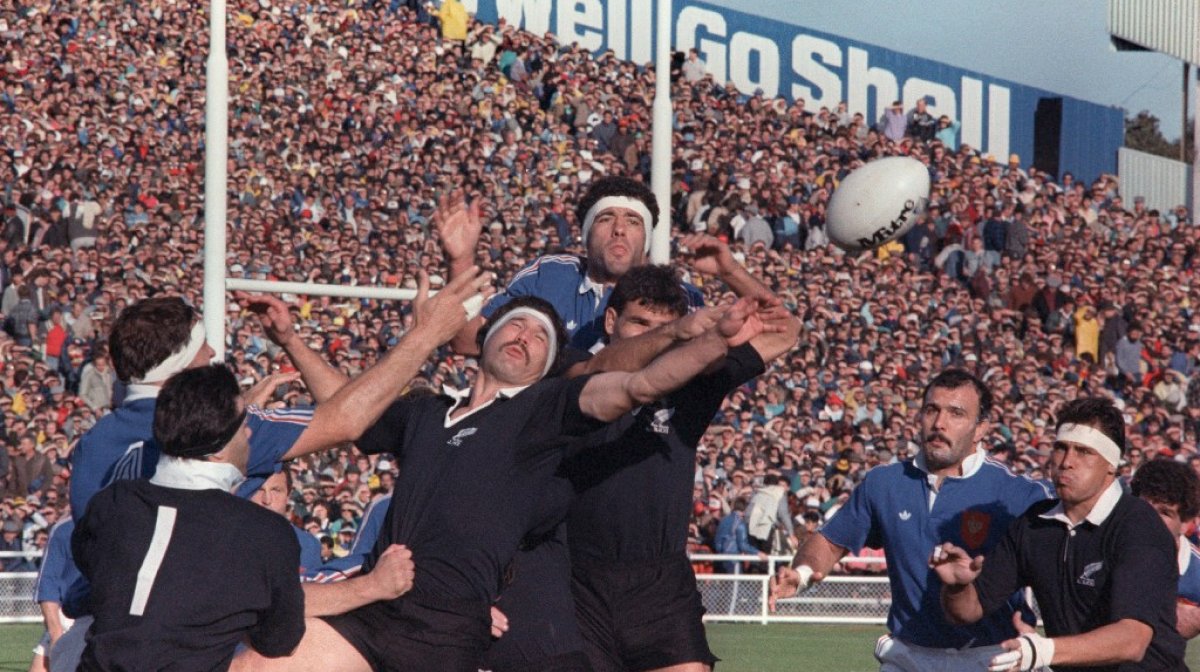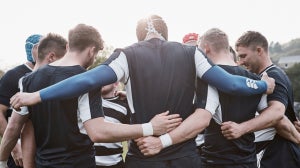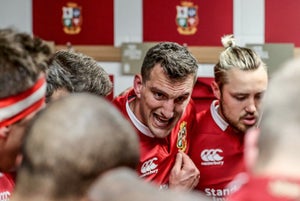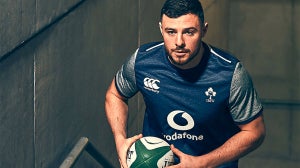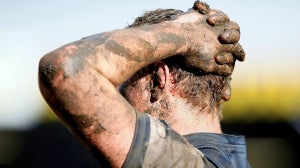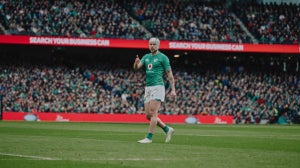
The wait is nearly over; Rugby World Cup 2019 is just around the corner. It already promises to be the best tournament ever and expectation is building accordingly. There will be shocks and surprises and new stars will emerge, but will we see New Zealand become the first team to extend their retain of the trophy? Or will we see a rare win for the northern hemisphere? Whatever happens, there will be excitement galore and, if the seven previous tournaments are anything to go by, fans are in for a treat.
1987 (Australia/New Zealand)
Just 16 teams contested the inaugural RWC, seven members of the International Rugby Football Board and nine invitees. Controversially, Western Samoa was not invited, South Africa was excluded because of its apartheid government and the Soviet Union declined to attend because of South Africa’s membership of the IFRB. In pool play, New Zealand wing John Kirwan scored a length of the field solo try against Italy that still stands as one of the best ever. As was to happen 24 years later, New Zealand ran out winners over France in the final.
1991 (Europe)
Hosted in Europe, the 1991 tournament was contested by 16 teams, eight qualified automatically by being quarterfinalists in 1987 and the rest qualified from 25 nations that competed in qualifying tournaments. There were some surprise score-lines with Wales knocked out by a loss to Western Samoa in pool play and Canada reaching the quarterfinals for the only time in its history. Australia reached the final with the support of local crowds that admired the open style of play adopted by the Wallabies while England won through by virtue of solid but uninspiring displays and a horror miss from in front of the posts by Scotland’s Gavin Hastings in the semi-final. Australia beat England in a tight final to win the trophy.
1995 (South Africa)
Despite home advantage, South Africa, playing in the tournament for the first time, was not expected to do well. 52 nations took part in qualifying with just 16 making the finals. Although some fine rugby was played the tournament is remembered mostly for the performance of All Blacks wing Jonah Lomu, whose powerful running and total demolition of England’s defence in the semi-final made him a super-star, and for the moment that united a nation when Nelson Mandela presented the trophy to the Springboks’ captain while wearing a Springbok jersey. But let’s not forget Ivory Coast winger Max Brito, who was left paralysed below the neck after being trapped at the bottom of a collapsed maul in his side’s match against Tonga.
1999 (Wales)
The 1999 RWC was the first of the professional era and was expanded to twenty teams. Although Australia ran out winners, becoming the first team to win the RWC twice, the match of the tournament was the semi-final between New Zealand and France. Hot favourites New Zealand began in fine style, charging into a 24-10 lead, courtesy of two tries from Lomu. But then Christophe Lamaison took charge, guiding his side to 33 unanswered points and a victory that no one expected. In a disappointing end to the game many New Zealand players, Lomu being a notable exception, left the field without shaking the hands of the French.
2003 (Australia)
Contractual disputes meant that the 2003 RWC was held wholly in Australia rather than shared with New Zealand. England entered the tournament as favourites on the back of some excellent pre-tournament results, but it was Australia that set the home crowds alight with a record 142-0 win over hapless Namibia. Australian hopes were boosted by an excellent semi-final win over New Zealand that took the Wallabies into the final against an England side that was proving itself very tough. All England will, of course remember the final. A tight game, the sides were locked at 17 points each with seconds to go in extra time when Jonny Wilkinson coolly slotted a drop goal off his weaker right foot to give England a famous victory.
2007 (France)
With England a shadow of the side that had dominated just four years earlier, it looked like 2007 would see a return to southern hemisphere dominance. Indeed, before the finals began, some pundits in Australia and New Zealand were highly critical of the draw that would have seen the two countries face off at the semi-final stage, not the final where some thought they should meet. England started poorly with a thrashing at the hands of South Africa but then the side woke up, scraping past Australia in the quarterfinal and ending the French challenge in the semi. Meanwhile perennial favourites New Zealand came unstuck against France again (though the Kiwis would complain about referee Wayne Barnes’ failure to call a forward pass that led to the French try). In the final, South Africa ground out a 15-6 win against England.
A final that was decided in part by such a fine margin a few millimetres in fact, with a dazzling run from the young centre Matthew Tait, to be taken down inches sort then the ball. Then, to be recycled onto Mark Cuteo to dot the ball down in the corner but with his foot in touched set the president for the rest of the game, a well fought victory for the Spring Boks saw off an inspired England.
2011 (New Zealand)
Hot favourites and playing at home, New Zealand were always going to be tough to beat. On field, the tournament was thrilling with some great moments, none more so than when relative unknown USA winger Takudzwa Ngwenya took on South Africa’s Bryan Habana, then reckoned to be rugby’s fastest player, and beat him on the outside to score a great try. It was a tournament that saw players fined for wearing wrongly sponsored mouthguards, England’s off-field behaviour roundly criticised, England penalised for illegally changing the ball prior to kicks, Australia’s Quade Cooper subjected to catcalls from Kiwi crowds every time he touched the ball and Samoa complaining that second tier sides were given a raw deal in the tournament schedule. New Zealand, of course, went on to win a tight final against old nemesis France, with skipper Ritchie McCaw playing an inspirational role despite playing with an injured foot.
2015 (England)
All eyes were on England as hosts of Rugby World Cup 2015, and there was intense pressure for them to succeed. It proved to be a memorable competition, with plenty of shocks along the way. After 3 matches, England were out and, for the first time, the Rugby World Cup main hosts that had failed to get out of their pool. The drama wasn’t reserved to Pool A, though. In Pool B Japan pulled off one of the greatest shocks in the sport’s history defeating South Africa 34-32 with a last minute try from Karne Hesketh sending the two-time champions to an opening-game loss.
On the other side of the draw events went more according to plan as New Zealand and Argentina first and second respectively in Pool C. In Pool D, Ireland won their four matches to finish ahead of France.
For the first time, there was no northern hemisphere representation in the semi-finals. After squeezing through against Scotland, Australia went up a ger against Argentina to earn a spot in the final. Waiting for them were the reigning champions New Zealand.
All Black’s retain the title.
For now…

